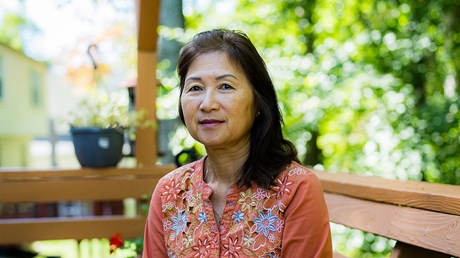After escaping the Khmer Rouge with my siblings, I learned who had been protecting me all along.

Amazing grace, how sweet the sound that saved a wretch like me.” The first time I heard those words, I was 14 years old. It was a cold, still night at the Khao-I-Dang refugee camp in Thailand.
I’d only been there for a few weeks, and the sensation of safety was still new and surreal. It was hard to really believe I could close my eyes and sleep without fear of being captured, of being found out, of waking to find that a loved one had been dragged away in the night. We had worked hard to get here, to cross the border from Cambodia and find a place where we could live again.
I was lying in my bed when “Amazing Grace” came rippling in through the window. I couldn’t make out the words, but the melody woke something in me. With it came a presence, at once unnamed and familiar. I’d felt it before.
Praying for help
I’d been raised Buddhist in Phnom Penh, Cambodia’s capital. Each morning, my mother would set out a plate of fresh fruit for our ancestors and light incense so that a tendril of smoke would rise like our prayers to them. We sometimes went to the temple, bowing before statues of earth, water, fire, and rain. I remember the great statue of Buddha towering over me. But I never lingered in the temple. As a child, I didn’t have the patience or decorum to sit still so long.
When the Khmer Rouge came, it changed everything. I was ten years old at the time. Like everyone else in Phnom Penh, my family was forced from our home and sent into the countryside to work in labor camps.
The name of God was erased from our world, just like the colorful clothes and the lively city streets of life before communism. No one spoke of him now, except in hushed tones. When the Khmer Rouge split ...
from Christianity Today Magazine
Umn ministry


.gif)

.gif)
.gif)
